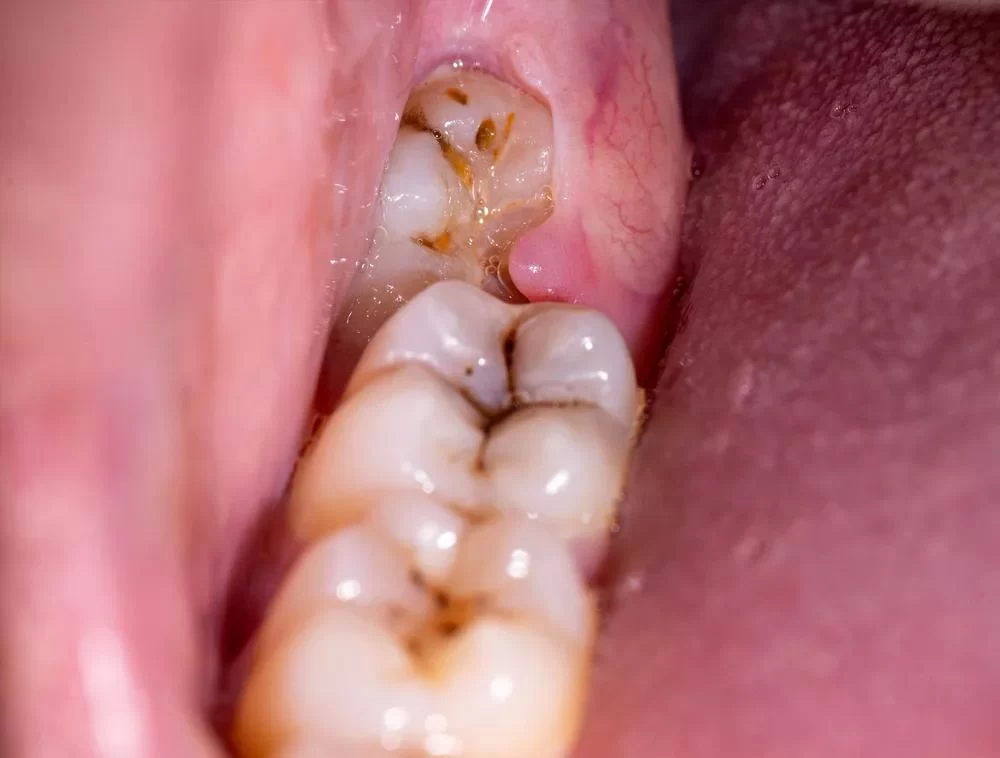
- what-are-symptoms-of-wisdom-tooth-infection
- early-warning-signs-to-watch-for
- real-case-experience-of-a-wisdom-tooth-infection
- how-to-handle-an-infected-wisdom-tooth
- expert-tips-on-prevention-and-care
1. What Are Symptoms of Wisdom Tooth Infection?
When a wisdom tooth becomes infected, it doesn't go unnoticed for long. These third molars, located at the back of your mouth, can cause significant discomfort when things go wrong. The most common symptoms of wisdom tooth infection include persistent pain, swelling around the gums, bad breath, and difficulty opening the mouth fully. This condition, often called pericoronitis, typically occurs when a wisdom tooth is partially erupted and traps food or bacteria beneath the gum flap.
Other signs might be fever, a foul taste in the mouth, and even swollen lymph nodes in more advanced cases. If you're experiencing symptoms of wisdom tooth infection, it's crucial to address them early to avoid complications such as abscess formation or the infection spreading to other areas.
2. Early Warning Signs to Watch For
One of the earliest and most overlooked symptoms of a wisdom tooth infection is a dull ache or pressure at the back of the jaw. Many people mistake this for normal teething pain, especially during the late teens or early twenties. However, when combined with red or swollen gums, bleeding while brushing, or persistent bad breath, it’s a sign something more serious could be developing.
In some cases, a small amount of pus might be visible around the tooth, or you might notice a bitter taste that doesn’t go away. At this point, it’s important to consult a dental professional. Dentistry Toothtruth provides guidance and access to trusted dental services and treatments that can help relieve the pain and prevent further complications.
3. Real Case Experience of a Wisdom Tooth Infection
Consider the case of Emily, a 23-year-old university student. She began feeling a nagging discomfort on the lower left side of her jaw. Over a few days, the pain intensified, and she noticed swelling that made it hard to chew. Her friends mentioned her breath smelled "off," which embarrassed her deeply. Finally, when she couldn’t open her mouth more than halfway, she sought help.
The dentist diagnosed her with a bacterial infection in a partially erupted wisdom tooth. Emily underwent a minor surgical procedure to clean the area and was prescribed antibiotics. Her recovery was smooth, and she shared how grateful she was for taking action early. Her story is a reminder that recognizing the symptoms of wisdom tooth infection and acting swiftly can prevent more severe issues.
4. How to Handle an Infected Wisdom Tooth
If you suspect you're dealing with an infected wisdom tooth, your first step should be to contact a dental professional. In the meantime, rinsing with warm salt water and avoiding hard or sticky foods can help manage the symptoms. Pain relievers like ibuprofen may offer temporary relief, but they’re no substitute for proper care.
Treatment options vary depending on the severity of the infection. In mild cases, cleaning and antibiotics may be sufficient. However, if the infection is recurrent or the tooth is impacted, extraction might be necessary. At Dentistry Toothtruth, we help match you with experienced professionals who can assess your case and provide the most appropriate treatment options.
5. Expert Tips on Prevention and Care
Preventing a wisdom tooth infection starts with good oral hygiene. Brush twice daily, floss carefully around the back molars, and use an antiseptic mouthwash regularly. It’s also wise to schedule dental checkups every six months to monitor the growth and alignment of your wisdom teeth.
Sometimes, even with perfect care, wisdom teeth can still cause problems due to lack of space or improper eruption. That’s why proactive evaluation by a dentist is key. They can use X-rays to track the movement of your wisdom teeth and recommend early extraction if necessary. For reliable advice and high-quality dental services, Dentistry Toothtruth is your go-to resource for understanding your oral health and accessing the best care in your area.







 Lakeside Family Dentist3.0 (2 review)
Lakeside Family Dentist3.0 (2 review) Garden Lakes Family Dentistry4.0 (420 review)
Garden Lakes Family Dentistry4.0 (420 review) Deem Thomas E DDS5.0 (4 review)
Deem Thomas E DDS5.0 (4 review) William Farmer, DDS5.0 (5 review)
William Farmer, DDS5.0 (5 review) Dentistry for Children of Jackson4.0 (545 review)
Dentistry for Children of Jackson4.0 (545 review) Tiny Tooth Co. and Trindade Orthodontics4.0 (107 review)
Tiny Tooth Co. and Trindade Orthodontics4.0 (107 review) The Importance of Oral Health Education During Pregnancy for a Healthy Pregnancy
The Importance of Oral Health Education During Pregnancy for a Healthy Pregnancy Best Tips for Brushing Your Teeth Properly for Healthy Gums: Essential Techniques for Oral Health
Best Tips for Brushing Your Teeth Properly for Healthy Gums: Essential Techniques for Oral Health Why Skipping Dental Checkups Can Lead to Bigger Oral Health Problems
Why Skipping Dental Checkups Can Lead to Bigger Oral Health Problems Advantages of Porcelain Dental Restorations
Advantages of Porcelain Dental Restorations How Can Diabetes Cause Tooth and Gum Problems? Preventing and Managing Oral Health Issues
How Can Diabetes Cause Tooth and Gum Problems? Preventing and Managing Oral Health Issues Healthy Habits for Promoting Good Oral Health and Hygiene: Tips for a Healthy Smile
Healthy Habits for Promoting Good Oral Health and Hygiene: Tips for a Healthy Smile